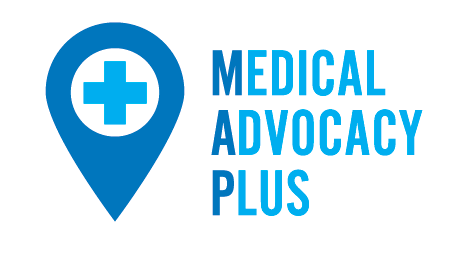07 Nov Oral Hygiene and Chronic Disease: A Patient Advocate’s Perspective
Oral Hygiene and Chronic Disease: A Patient Advocate’s Perspective
As a patient advocate and speech pathologist, I am passionate about educating people about the importance of oral health and its connection to chronic disease. Many people don’t realize that poor oral hygiene can increase their risk of developing chronic diseases such as heart disease, stroke, diabetes, and Alzheimer’s disease.
The Oral-Systemic Connection
You may be surprised to learn that there’s a profound connection between oral health and chronic diseases, one that can significantly impact your overall well-being. Research has shown that poor oral hygiene can have far-reaching consequences, extending well beyond cavities and gum disease. It can affect various chronic conditions, such as heart disease, diabetes, and respiratory diseases.
Here, I’d like to shed some light on this important topic and how it affects not only your oral health but your entire body.
Cardiovascular Health
One of the most surprising links is between gum disease (periodontitis) and heart disease. The bacteria in your mouth can enter the bloodstream through inflamed gums, traveling to other organs such as the heart and pancreas, causing inflammation and potentially leading to plaque in the arteries. This can increase your risk of developing heart disease, stroke, and diabetes. It’s a connection that’s often overlooked but can have a significant impact on your cardiovascular health.
Diabetes Control
If you have diabetes, managing your oral hygiene is even more critical. Periodontal disease can make it challenging to control blood sugar levels. In turn, uncontrolled diabetes can lead to more severe gum problems, creating a dangerous cycle. Understanding this connection can be a game-changer in your diabetes management. ,
Respiratory Health
Oral bacteria can also be aspirated into the lungs, leading to respiratory infections and worsening conditions like chronic obstructive pulmonary disease (COPD). I saw this first hand when I worked as a speech pathologist, witnessing my patients developing pneumonia. If you have respiratory issues, it’s crucial to be aware of the importance of maintaining excellent oral hygiene.
Alzheimer’s Disease
Chronic gum disease (periodontitis) has been linked to an increased risk of developing Alzheimer’s disease. Researchers believe that the inflammation caused by periodontitis may damage the brain and increase the risk of developing Alzheimer’s disease.
How to maintain good oral hygiene
You’d be surprised to know that many of my elderly clients ignore oral hygiene, primarily if they reside in an assisted living facility. They also don’t regularly brush their teeth and sleep with food pocketed in their gums and their teeth. And for my young clients out there, they often ignore going to the dentist due to the expense and time as they are venturing into adulthood.
The good news is that it is easy to maintain good oral hygiene and reduce your risk of developing chronic diseases. Here are a few tips:
- Brush your teeth twice a day for two minutes with fluoride toothpaste.
- Floss once a day to remove plaque and bacteria from between your teeth.
- Eat a healthy diet low in sugar and processed foods.
- Visit your dentist for regular checkups and cleanings.
What to do if you have chronic gum disease
If you have chronic gum disease, it is crucial to seek treatment from a dentist or periodontist. Treatment may involve scaling and root planing, which is a procedure to remove plaque and bacteria from below the gum line. In some cases, surgery may be necessary to treat chronic gum disease.
By prioritizing your oral health, you’re taking a significant step toward a healthier, happier life. Remember, I’m here to provide you with the information and guidance you need to make informed decisions about your health. These are some of the services we provide:
- Education about your condition and treatment options: I can help patients understand their disease, how it affects their body, and what treatment options are available. I can also help them research different treatment options and make informed decisions about their care.
- Help navigate the healthcare system: The healthcare system can be complex and confusing, especially for people with chronic diseases. I can help patients understand their insurance coverage, find the right doctors and specialists, and schedule appointments. I can also help them advocate for themselves when they need to.
- Provide support and emotional guidance: Living with a chronic disease can be challenging and stressful. I can provide patients with emotional support and help them connect with others with similar experiences.
In addition, here are a few tips:
- Eat a healthy diet. A healthy diet is essential for overall health and well-being. Eating plenty of fruits, vegetables, and whole grains can help reduce your risk of developing chronic diseases such as heart disease, stroke, diabetes, and cancer.
- Maintain a healthy weight. Being overweight or obese increases your risk of developing many chronic diseases. Aim to maintain a healthy weight by eating a healthy diet and exercising regularly.
- Get regular exercise. Exercise is vital for overall health and can help reduce your risk of developing chronic diseases. Aim for at least 30 minutes of moderate-intensity exercise most days of the week.
- Manage stress. Stress can increase your risk of developing chronic diseases such as heart disease and stroke. Find healthy ways to manage stress, such as exercise, yoga, or meditation.
- Avoid smoking and excessive alcohol consumption. Smoking and excessive alcohol consumption are major risk factors for developing chronic diseases such as heart disease, stroke, cancer, and lung disease. If you smoke or drink alcohol, talk to your doctor about quitting.
If you have any questions or concerns about chronic disease, please talk to your doctor or a patient advocate. We are here to help you live a healthy and fulfilling life.
If you’re concerned about yourself or a loved one, schedule a free consultation today to get started on improving your health!

